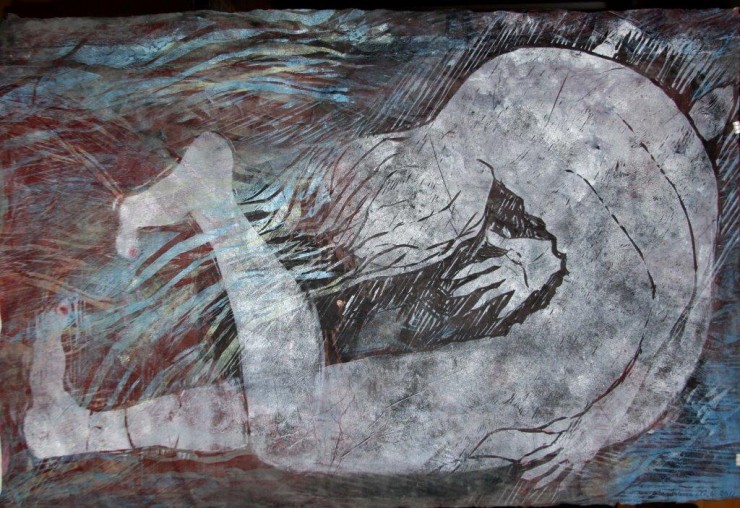Concurrent sessions on Saturday, June 6th explore unique cultural experiences of menstruation and delve into the parameters of premenstrual distress at the 21st Biennial Conference of the Society for Menstrual Cycle Research at The Center for Women’s Health and Human Rights, June 4-6, 2015, Suffolk University, Boston.
Culture and Embodiment:
Menstruation and objectification in an Icelandic context
Herdís Sveinsdóttir, University of Iceland
The aim of the study is to describe objectification among Icelandic women and how it relates to menstrual attitudes, women´s body consciousness and health behavior. Participants were 320 women aged 20-40 years drawn from the Register of Iceland in fall 2013. Findings regarding disordered eating and objectification will be discussed.
Shame, secrecy, or celebration: Experiences and constructions of menstruation across cultures
Alexandra Hawkey, Centre for Health Research, University of Western Sydney
Through qualitative interviews this study aims to reveal culturally specific experiences and constructions of menstruation with migrant women from a range of backgrounds, in Australia and Canada. Analysis of the data highlights a range of themes including, cultural silencing; celebration of the girl to women transition; and menstrual rules.
Black Women, Red Tent: Doing Blood Work and Recovery of Black Girlhood, Spirituality and Ritual Exclamations for Black Girl Periods
Sevonna Brown, Williams College
This project invites black women to explore their relationships to their menstruation and their bodies more holistically through a consideration of blood, spirituality, and monthly ritual. This conversation-making and interactive study anticipates collective issues of shame, survival, birth, infertility, sexuality and disease. The research inquiries desire to find Black women in their own Red Tent in celebration of their own bodies, reproductive mysteries, traumas and triumphs.
Premenstrual Distress:
Psychosocial factors associated with Premenstrual Syndrome
Ina Rosvall & Sandra Ekholm, University of Lund
Inspired by critical feminist research the association between PMS and psychosocial factors was studied using 1320 responses to a web survey. 33,9% of the total variance in PMS could be predicted, emphasizing the importance of social norms, family structure and relational factors over hormones in the understanding of premenstrual distress.
 Sarafem Redux: PMDD, Antidepressants, and Big Pharma
Sarafem Redux: PMDD, Antidepressants, and Big Pharma
Shannon M. Peters, Madeline Brodt & Lisa Cosgrove, University of Massachusetts
Industry-facilitated approval of antidepressants was used to justify inclusion of PMDD in the DSM-5. We provide data on industry funding of clinical trials of antidepressants for the treatment of PMDD, discuss the consequences of these commercial ties, and discuss the role of implicit bias in psychiatric research.
Evaluation of the relative efficacy and mechanisms of a couple-based intervention for Premenstrual Syndrome through a randomised control trial
Janette Perz & Jane Ussher, Centre for Health Research, University of Western Sydney
120 women took part in a randomised controlled trial comparing one-to-one and couple psychological therapy for PMS, in comparison to a wait list control group. Whilst women in all three conditions reported reductions in premenstrual distress and improvements in coping, women in the couple condition reported significantly greater reductions in distress post-intervention.
Measuring the Syndrome: An Introduction to the Measurement of Premenstrual Distress Disorders
Marie Hansen, Long Island University Brooklyn
This presentation will cover the history of the scientific measurement of Premenstrual Disorders and will explore the way in which these disorders are measured by researchers today. Included will be an analysis of two widely used scales: Premenstrual Tension Syndrome Observer Scale/ Self-Rating Scale (PMTS-O/SR) and the Daily Record of Severity of Problems (DRSP).
Media Release and Registration for the SMCR Boston Conference on Menstrual Health and Reproductive Justice: Human Rights Across the Lifespan.


